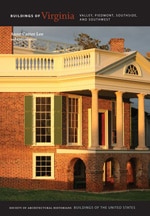Wythe is a county of majestic mountains, hills, and meadows colored the bright green of limestone country. Formed from Montgomery County in 1789, it was named for George Wythe, a signer of the Declaration of Independence and noted jurist who taught law to Thomas Jefferson. Settlement dates from the early 1740s when Scots-Irish and Germans from Pennsylvania and Maryland migrated through the Valley of Virginia to this area. In the 1750s, lead deposits discovered by Welsh-immigrant and adventurer John Chiswell supplied shot for frontiersmen and settlers and for soldiers in the French and Indian War, the Revolution, and the Civil War. In 1773, the small community of Lead Mines (now Austinville) that grew up around these deposits was named the seat of the vast Fincastle County that, because of colonial Virginia's territorial claims, extended west to the Mississippi River. When Montgomery County was carved from Fincastle County in 1776, Fort Chiswell became its county seat, but at the formation of Wythe County, Fort Chiswell, built on an arid hill, lost its official standing, and Wytheville took its place. Today, thanks to the intersection of I-77 and I-81, only The Mansion at Fort Chiswell (WY19) and the McGavock Cemetery (WY20) stand as poignant reminders of Fort Chiswell's illustrious past. The best-known relic of the Lead Mines is the Shot Tower (WY21).
Along with lead, iron has played an important part in Wythe County's economy and numerous iron furnaces operated here from the late eighteenth century into the early twentieth century. Remnants of furnaces are at Foster Falls (1880) and Noble (c. 1880). Now a recreation destination for hiking, canoeing, camping, biking, and fishing, the prosperous county is home to the New River Trail State Park. More important economically than tourism are agriculture, notably forage crops, burley tobacco, and livestock, and manufacturing, including machine parts and telecommunications equipment.
Writing Credits
If SAH Archipedia has been useful to you, please consider supporting it.
SAH Archipedia tells the story of the United States through its buildings, landscapes, and cities. This freely available resource empowers the public with authoritative knowledge that deepens their understanding and appreciation of the built environment. But the Society of Architectural Historians, which created SAH Archipedia with University of Virginia Press, needs your support to maintain the high-caliber research, writing, photography, cartography, editing, design, and programming that make SAH Archipedia a trusted online resource available to all who value the history of place, heritage tourism, and learning.

